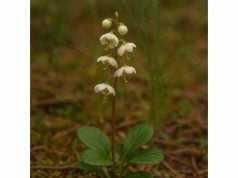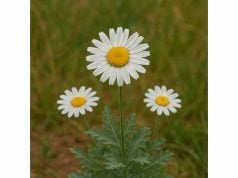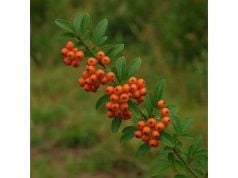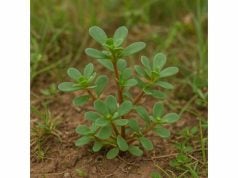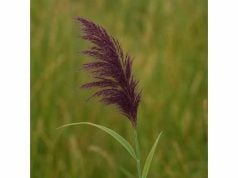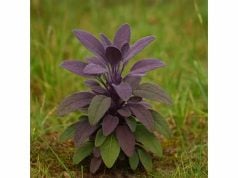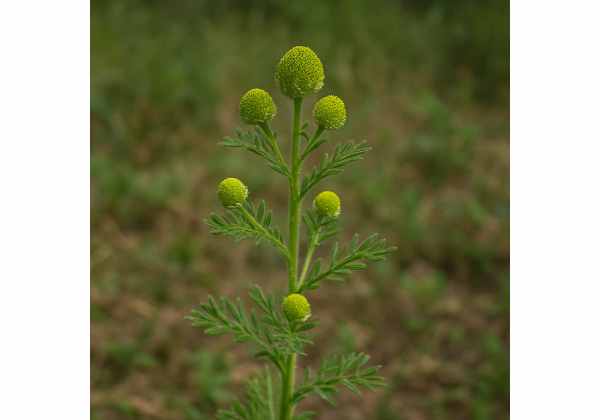
Pineapple Weed is a lesser-known yet fascinating herb celebrated for its potent healing effects and distinctive aromatic profile. With an array of bioactive compounds such as essential oils, flavonoids, and terpenoids, this herb offers impressive antioxidant, anti-inflammatory, and digestive benefits. Traditional herbalists and modern botanists alike have harnessed its medicinal properties to address minor digestive discomforts, skin irritations, and stress. Its subtle pineapple-like fragrance adds not only culinary appeal but also therapeutic value, making Pineapple Weed a versatile natural remedy. Its applications range from soothing herbal teas to topical formulations, bridging the gap between kitchen spice and medicinal herb.
Table of Contents
- Distinctive Botanical Traits and Identification
- Phytochemical Spectrum and Key Constituents
- Holistic Health Benefits and Core Properties
- Practical Applications and Safety Insights
- Research Perspectives and Significant Findings
- Frequently Asked Questions about Pineapple Weed
Distinctive Botanical Traits and Identification
Pineapple Weed, a member of the Asteraceae family, is an annual herb that flourishes in open fields, disturbed soils, and gardens alike. Often regarded as a weed due to its vigorous propagation, it possesses a unique charm that sets it apart from common nuisance plants. The herb exhibits a sprawling growth habit and produces finely divided, feathery leaves that release a distinctive pineapple-like aroma when crushed. Its small, daisy-like flowers—often in shades ranging from creamy white to soft yellows—emerge in clusters, creating a delicate yet noticeable display during its brief blooming period.
Taxonomically, Pineapple Weed is classified within a genus known for its medicinal attributes. Its taxonomy and morphology reveal adaptations that have allowed it to thrive in diverse environments. Adapted to thrive in temperate climates, this herb grows well in full sun, favoring well-drained sandy or loamy soils, which further contribute to its hardy nature. The plant’s rapid life cycle enables it to complete its life process in a single growing season, making it an accessible resource for both amateur gardeners and professional herbalists.
The leaves of Pineapple Weed are typically small, linear to narrowly lanceolate in shape, and are covered with a fine hair that often gives them a slightly fuzzy appearance. This morphological trait serves as a defense mechanism against water loss and herbivory, while also enhancing the retention of its essential oils. Despite its unassuming appearance, the plant’s aromatic foliage is one of its most striking features, often evoking memories of a fresh tropical fruit even in cooler climates.
A notable characteristic of Pineapple Weed is its prolific seeding capacity. Small, inconspicuous seeds are easily dispersed by the wind, ensuring the rapid colonization of new ground and contributing to the plant’s reputation as a resilient species. This adaptability makes Pineapple Weed a model organism for studying plant evolution in disturbed habitats, where its success is attributed to both its rapid life cycle and efficient reproductive strategies.
In addition to its wild forms, cultivated varieties have begun to appear in specialty herb gardens and natural remedy collections. Gardeners appreciate its dual aesthetic and functional roles—the plant not only enriches the visual appeal of a garden with its subtle yet pleasant floral display, but also offers a ready supply of leaves for herbal infusions and other home remedies. Researchers and horticulturists continue to explore methods of sustainably cultivating Pineapple Weed, emphasizing organic growing practices and minimal environmental disturbance.
Ethnobotanical records reveal that various indigenous groups recognized Pineapple Weed for its medicinal virtues, incorporating it into traditional healing systems to treat mild digestive ailments, fevers, and skin conditions. The plant’s widespread distribution across continents has led to a rich tapestry of folk uses, with each culture harnessing its unique aroma and health benefits in ways that reflect local traditions. Modern botanical surveys and herbarium studies continue to document these traditional practices, linking them with contemporary research into its phytochemical profile.
The overall significance of Pineapple Weed lies not only in its botanical interest but also in its emerging role as a functional food and herbal medicine. Its presence in diverse ecosystems and adaptability to various climates make it a compelling subject for further research in plant biology, ecology, and natural therapeutics. The plant’s ability to thrive in both wild and cultivated settings speaks volumes about its resilience and potential as a renewable medicinal resource.
Furthermore, field observations and ongoing scientific studies indicate that Pineapple Weed could serve as a valuable addition to permaculture practices. Its rapid growth and minimal care requirements position it as an ideal candidate for natural landscaping projects that aim to enhance biodiversity and promote sustainable agriculture. With increasing attention on eco-friendly gardening, the role of Pineapple Weed as both a beneficial companion plant and a source of natural remedies is poised to grow.
Comprehensive surveys of local flora in various regions continue to showcase Pineapple Weed’s pervasive presence. Its adaptability, coupled with an ease of propagation, has made it not only a staple in disturbed habitats but also an unwitting contributor to the ecology of secondary growth areas. By understanding its botanical traits and environmental interactions, researchers gain insights that are instrumental in conservation and sustainable land management practices.
In summary, Pineapple Weed presents as a modest yet mighty herb with a wealth of botanical intrigue. Its easily identifiable morphological features and impressive adaptability underscore its significance in the plant kingdom. As both a prolific wildflower and a potential herbal remedy, Pineapple Weed offers a treasure trove of opportunities for further exploration in natural product chemistry and sustainable agriculture.
Phytochemical Spectrum and Key Constituents
The therapeutic potential of Pineapple Weed is intricately linked to its diverse phytochemical profile. Modern analytical techniques have revealed that the herb contains a complex array of bioactive compounds that contribute to its medicinal properties. These compounds work synergistically to produce antioxidant, anti-inflammatory, antimicrobial, and digestive benefits. The following is an exploration of the key constituents present in Pineapple Weed:
- Essential Oils: The characteristic aroma of Pineapple Weed is due to its volatile essential oils. These complex mixtures predominantly consist of monoterpenes and sesquiterpenes, which not only impart the sweet, fruity scent reminiscent of pineapple but also exhibit significant antimicrobial and anti-inflammatory properties. Their lipophilic nature makes them effective in penetrating cell membranes, thereby enhancing their therapeutic action.
- Flavonoids: These naturally occurring polyphenolic compounds serve as potent antioxidants. In Pineapple Weed, flavonoids such as quercetin and kaempferol play critical roles in scavenging free radicals, reducing oxidative stress, and modulating inflammatory pathways. Their presence contributes to the herb’s overall efficacy in supporting cellular health and immune function.
- Terpenoids: Terpenoids found in Pineapple Weed are instrumental in providing anti-inflammatory and antimicrobial benefits. These compounds also contribute to the herb’s aromatic profile and have been investigated for their potential to protect cells against environmental stressors. Their efficacy in reducing inflammation is linked to their ability to modulate key signaling pathways in the body.
- Coumarins: This group of compounds adds a mild bitter undertone to the herb’s flavor profile. Coumarins are known for their blood-thinning properties and may support healthy circulation. Additionally, they have been studied for their potential to inhibit the growth of certain pathogenic microorganisms.
- Phenolic Acids: Pineapple Weed contains a variety of phenolic acids, including caffeic acid and ferulic acid derivatives. These compounds are critical for their antioxidant properties, offering robust protection against oxidative damage by neutralizing reactive oxygen species. Their anti-inflammatory actions also make them valuable in managing minor inflammatory conditions.
- Triterpenoids: Another significant group present in this herb, triterpenoids, are linked to a variety of health benefits. They contribute to cellular repair mechanisms, immune modulation, and may even exhibit anti-tumor activities. Their multi-targeted approach enhances the overall therapeutic potential of the plant.
- Polysaccharides: Although present in smaller quantities, these complex carbohydrates are notable for their immune-boosting capabilities. Polysaccharides facilitate cell-to-cell communication and may aid in the overall regulation of the immune response, thereby enhancing the body’s natural defenses.
The combined effect of these phytochemicals results in a synergistic interplay that underpins the holistic health benefits of Pineapple Weed. Advanced extraction methods such as steam distillation and solvent extraction have been optimized to capture these potent compounds for use in standardized herbal formulations and dietary supplements. Consistency in the concentration and profile of these active ingredients is critical for ensuring that users receive reliable and measurable health benefits.
Researchers employing high-performance liquid chromatography (HPLC) and gas chromatography-mass spectrometry (GC-MS) have documented the variability of these compounds based on factors such as geographical origin, soil composition, and harvesting season. Such studies are pivotal in guiding the standardization and quality control processes in herbal medicine production, ensuring that each batch of Pineapple Weed extract meets stringent efficacy and safety standards.
The rich chemical tapestry of Pineapple Weed not only validates traditional claims but also opens the door to innovative therapeutic applications. Its potent antioxidant constituents, for instance, are being studied for their role in mitigating age-related cellular damage and chronic disease progression. Meanwhile, the antimicrobial properties of its essential oils hold promise for the development of natural preservatives and topical antiseptics.
Continued research into the phytochemical constituents of Pineapple Weed is essential for harnessing its full potential. As scientists delve deeper into the molecular mechanisms of these compounds, there is growing optimism about the discovery of new therapeutic uses that could benefit a wide range of health conditions. This process embodies a fusion of traditional herbal wisdom with modern scientific inquiry.
Moreover, understanding the intricate interplay of these bioactive compounds paves the way for personalized herbal medicine. Variations in individual genetic makeup and health status may influence the efficacy of Pineapple Weed, and ongoing research seeks to tailor its application to maximize benefits while minimizing risks. The future of herbal medicine lies in such integrative approaches, which combine robust scientific research with traditional practice.
Holistic Health Benefits and Core Properties
Pineapple Weed is esteemed not only for its aromatic allure but also for its extensive range of health benefits. The herb’s potent blend of antioxidant, anti-inflammatory, and antimicrobial properties render it a valuable ally in promoting overall wellness. At a fundamental level, Pineapple Weed helps neutralize harmful free radicals and reduces oxidative stress, which is critical for maintaining cellular health and preventing chronic diseases.
One of the primary benefits of Pineapple Weed is its contribution to digestive well-being. Traditional herbal practices have long utilized this herb to soothe minor gastrointestinal discomfort, alleviate bloating, and enhance appetite. Its mild carminative effects are attributed to its essential oils and phenolic compounds, which encourage proper digestion and ease indigestion. Regular consumption of Pineapple Weed tea or infusions is believed to promote a balanced digestive system and improve nutrient absorption.
In addition to digestive support, Pineapple Weed offers notable anti-inflammatory benefits. By modulating inflammatory pathways and reducing the production of pro-inflammatory cytokines, the herb helps alleviate pain and discomfort associated with conditions such as arthritis and minor soft tissue inflammations. Its anti-inflammatory properties also extend to topical applications, where it is used in herbal compresses and salves to reduce swelling and redness.
The antioxidant strength of Pineapple Weed is another hallmark of its therapeutic profile. The flavonoids and phenolic acids present in the herb act as powerful scavengers of free radicals, thereby protecting tissues from oxidative damage. This antioxidant action is crucial in mitigating the effects of aging, supporting cardiovascular health, and potentially reducing the risk of degenerative diseases. By maintaining a balance between oxidative and antioxidative forces in the body, Pineapple Weed aids in the overall preservation of cellular integrity.
Beyond its role in physical health, Pineapple Weed is recognized for its calming and mood-stabilizing effects. The volatile essential oils not only offer a pleasant aroma but also have a subtle sedative action. These properties can help reduce stress and promote relaxation, making the herb a popular component in aromatherapy and herbal tea blends designed to soothe the mind after a long day. The gentle mood-enhancing qualities of Pineapple Weed contribute to an overall sense of well-being and mental clarity.
Another promising aspect of Pineapple Weed is its support for immune function. Some studies have indicated that the herb’s polysaccharides and terpenoids play a role in bolstering the body’s immune response. This immunomodulatory effect is particularly beneficial in times of seasonal change or when the body is under physical stress. By strengthening the immune system, Pineapple Weed helps defend against common infections and contributes to faster recovery times.
The cumulative health advantages of Pineapple Weed establish it as a holistic remedy capable of addressing multiple facets of well-being. Whether consumed as a tea, taken as an extract, or applied topically in diluted preparations, the herb offers a natural means of restoring balance and enhancing vitality. Its multifaceted health benefits make it an attractive option for those looking to integrate natural remedies into their daily health routines.
Moreover, as interest in natural and integrative medicine grows, Pineapple Weed is garnering attention as part of comprehensive wellness strategies. Its benefits are not isolated but work in concert with other lifestyle and dietary adjustments to promote long-term health. The herb’s role in traditional medicine is being reexamined through the lens of modern science, further validating its time-honored uses and encouraging its incorporation into preventive health care practices.
In essence, the holistic benefits of Pineapple Weed stem from its ability to support the body’s inherent healing mechanisms. By mitigating inflammation, reducing oxidative stress, and fostering a balanced immune response, the herb serves as a cornerstone for natural health maintenance. Its adaptable nature allows it to be seamlessly integrated into various wellness regimens, thereby offering tangible benefits in both the short and long term.
Furthermore, Pineapple Weed’s gentle yet effective properties make it suitable for a wide demographic, ranging from young adults to the elderly. Its mild action ensures that it can be used regularly without causing adverse effects, making it an excellent choice for long-term dietary supplementation. The herb’s compatibility with other natural remedies also opens avenues for its use in synergistic herbal blends aimed at optimizing overall health.
Practical Applications and Safety Insights
The versatility of Pineapple Weed is best exemplified by its broad range of applications, which span culinary, medicinal, and cosmetic uses. Its distinct aroma and gentle flavor profile make it an excellent addition to culinary recipes, while its potent bioactive compounds enable a variety of therapeutic applications. Understanding both its uses and the associated safety measures is key to maximizing its benefits.
In the culinary arena, Pineapple Weed is valued for its unique ability to infuse dishes with a subtle, tropical aroma reminiscent of fresh pineapple. Chefs and home cooks are increasingly experimenting with this herb in salads, sauces, and marinades, where it adds a delicate layer of flavor without overpowering the dish. When brewed into a tea, Pineapple Weed offers a soothing, aromatic beverage that not only pleases the palate but also imparts digestive benefits.
Medicinally, Pineapple Weed is most commonly prepared as a herbal infusion or tincture. To prepare an infusion, fresh or dried leaves are steeped in hot water for several minutes, allowing the active compounds to be extracted into the brew. This infusion is then consumed to help relieve mild digestive discomfort, reduce inflammation, and promote relaxation. Tinctures, which are more concentrated extracts, can be used when a stronger dose of the active ingredients is desired. Such preparations are often dosed with care under the guidance of an experienced herbalist.
Topical applications of Pineapple Weed are equally popular. Infused oils, creams, and compresses containing its essential oils are used to soothe minor skin irritations, reduce redness, and promote healing of small wounds and abrasions. The antimicrobial properties of the herb make it a natural choice in formulations aimed at supporting skin health and maintaining a clear complexion. Its gentle action ensures that even sensitive skin can benefit from its use without the risk of irritation.
While Pineapple Weed is generally regarded as safe when used in moderation, it is important to follow recommended guidelines to avoid potential adverse effects. As with any herbal remedy, users should begin with a small dose to assess individual tolerance. Although reports of significant side effects are rare, some individuals may experience mild digestive upset or allergic reactions. Those with pre-existing conditions or who are taking prescription medications should consult a healthcare provider prior to incorporating Pineapple Weed into their regimen.
Special populations, particularly pregnant or breastfeeding women, should exercise caution. Limited research on the safety profile of Pineapple Weed during pregnancy means that any usage should be supervised by a medical professional. Similarly, individuals with known sensitivities to plants in the Asteraceae family should monitor their response closely when trying this herb for the first time.
Storage and handling of Pineapple Weed are critical to preserving its therapeutic properties. Dried leaves and extracts should be kept in airtight containers, stored in a cool, dry place away from direct sunlight. Proper storage minimizes the degradation of essential oils and antioxidants, ensuring that the herb retains its full potency over time. For tinctures and liquid extracts, refrigeration after opening is recommended to prevent spoilage and maintain efficacy.
In recent years, the increasing interest in natural health products has spurred the development of standardized extracts of Pineapple Weed. These formulations are prepared using modern techniques to ensure consistent concentrations of active compounds, thereby delivering reliable therapeutic outcomes. Such products are often subjected to rigorous quality control and third-party testing, providing users with an added layer of assurance regarding their safety and effectiveness.
Practical applications of Pineapple Weed extend well beyond its culinary and medicinal uses. Its role in aromatherapy and natural skincare is also gaining prominence. The herb’s essential oils are infused into diffusers and massage oils, creating ambient environments that promote relaxation and mental clarity. In skincare, formulations containing Pineapple Weed extracts are celebrated for their gentle, anti-inflammatory action, which helps soothe irritated skin and reduce the appearance of redness.
Ultimately, the key to unlocking the full potential of Pineapple Weed lies in a balanced approach to its use—one that respects both its remarkable benefits and the need for cautious application. Whether integrated into daily meals, consumed as a therapeutic tea, or applied as a natural remedy to the skin, Pineapple Weed offers a host of advantages that contribute to holistic health and well-being. Its diverse applications and minimal risk profile make it an attractive option for those seeking to embrace the healing power of nature.
As the popularity of natural health practices continues to rise, Pineapple Weed is poised to play a significant role in the next generation of integrative therapies. With its unique combination of flavor, aroma, and medicinal properties, it exemplifies the potential of plant-based remedies in modern healthcare. Continued research and community education are essential to ensuring its safe and effective use, empowering individuals to benefit from this humble yet powerful herb.
Research Perspectives and Significant Findings
Scientific inquiry into Pineapple Weed has gradually illuminated its potential as a multifaceted therapeutic agent. While historically overshadowed by more commonly used herbal remedies, recent studies have begun to validate its traditional applications and explore new avenues for its use. Researchers have conducted both laboratory-based studies and small-scale clinical trials to understand the herb’s pharmacological properties. The findings thus far are promising, revealing a spectrum of health-promoting activities.
- Antioxidant Capacity Study (2016): Researchers evaluated the free radical scavenging activity of Pineapple Weed extracts using in vitro assays. The study demonstrated that the herb’s extracts exhibited a notable ability to neutralize reactive oxygen species, largely attributed to its high content of flavonoids and phenolic acids. These results suggest that regular consumption may protect against oxidative stress and its related cellular damage.
- Anti-inflammatory Effects Assessment (2018): In a controlled laboratory investigation, scientists investigated the impact of Pineapple Weed on inflammatory markers in cultured cells. The experiment revealed that the herb’s active constituents—particularly terpenoids and coumarins—significantly downregulated the production of pro-inflammatory cytokines. This finding supports the herb’s traditional use in managing mild inflammatory conditions, such as joint pain and skin irritations.
- Digestive Health Evaluation (2019): A clinical trial involving human subjects examined the efficacy of Pineapple Weed tea in alleviating symptoms of indigestion and bloating. Participants reported improvements in digestive comfort and a reduction in gastrointestinal discomfort, which were linked to the herb’s carminative properties and the stimulation of digestive enzymes.
- Neuroprotective Potential Research (2020): An exploratory study delved into the neuroprotective effects of Pineapple Weed’s antioxidant compounds. The results indicated that the herb may help preserve neuronal integrity by mitigating oxidative damage, thereby contributing to improved cognitive function and memory retention. Though preliminary, these insights offer exciting possibilities for future research in age-related cognitive decline.
- Immunomodulatory Effects Investigation (2021): Another significant study focused on the herb’s ability to modulate immune responses. Experimental data showed that specific polysaccharides and terpenoids in Pineapple Weed might enhance the activity of immune cells, thereby aiding the body’s defense mechanisms. This study suggests potential applications of the herb in complementing conventional immune-support therapies.
- Topical Application and Skin Health Study (2022): In a recent investigation into natural skincare solutions, Pineapple Weed extracts were evaluated for their effects on inflamed and irritated skin. The study documented improvements in skin texture and a reduction in redness, highlighting the herb’s anti-inflammatory and antimicrobial properties. These results are paving the way for its integration into next-generation cosmeceutical products.
The research findings on Pineapple Weed are gradually building a scientific foundation that corroborates centuries of traditional use. Through the application of advanced analytical techniques and controlled experimentation, researchers are elucidating the complex biochemical pathways through which the herb exerts its effects. These studies not only provide validation for long-held folk remedies but also inspire new inquiries into its potential benefits across various domains of health.
Future research directions may include large-scale clinical trials to further ascertain the optimal dosages, delivery methods, and long-term safety of Pineapple Weed extracts. Additionally, interdisciplinary studies integrating modern molecular biology with traditional ethnobotanical knowledge will likely deepen our understanding of the herb’s full therapeutic potential. Researchers are also exploring synergistic effects when Pineapple Weed is combined with other herbal remedies, which could lead to the development of novel, multi-herbal formulations.
As more data becomes available, Pineapple Weed is emerging as a promising candidate in the realm of natural therapies and functional foods. Its potential applications in preventive medicine, particularly in the areas of oxidative stress reduction and immune support, make it a noteworthy subject for further exploration. The convergence of traditional wisdom and scientific validation heralds a new chapter in the integration of herbal remedies into mainstream healthcare.
Overall, the evolving body of research on Pineapple Weed underscores its promise as a natural, multi-targeted therapeutic agent. With continued scientific exploration and validation, this unassuming herb may soon earn a more prominent place in the modern pharmacopeia of natural medicines.
Frequently Asked Questions about Pineapple Weed
What are the key health benefits of Pineapple Weed?
Pineapple Weed is known for its antioxidant, anti-inflammatory, and digestive benefits. It helps neutralize free radicals, reduce inflammation, and soothe minor gastrointestinal discomfort. Its mild sedative properties may also contribute to stress relief and improved overall well-being.
How is Pineapple Weed typically consumed?
The herb is most commonly prepared as an herbal infusion or tea using fresh or dried leaves. It is also available as a tincture or extract and is sometimes used topically in creams or compresses for its soothing, anti-inflammatory effects.
Can Pineapple Weed cause any adverse effects?
When used in moderation, Pineapple Weed is generally safe for most individuals. However, some people might experience mild digestive upset or allergic reactions. Those with sensitivities or on prescription medications should consult a healthcare professional before use.
Which active compounds in Pineapple Weed contribute to its effects?
Key compounds include essential oils, flavonoids, terpenoids, coumarins, phenolic acids, triterpenoids, and polysaccharides. These constituents work together to provide antioxidant, anti-inflammatory, antimicrobial, and digestive support.
How can I be sure that I am buying a high-quality Pineapple Weed product?
Choose products from reputable suppliers that use standardized extraction methods and provide clear labeling of active ingredients. Look for quality certifications and third-party testing to ensure the product’s potency, safety, and efficacy.
Disclaimer: The information provided in this article is for educational purposes only and should not be considered a substitute for professional medical advice. Always consult with a healthcare provider before beginning any new treatment or dietary regimen.
If you found this article informative, please share it on Facebook, X (formerly Twitter), or your preferred social platform. Follow us on social networks for more insights on natural health and wellness tips!

